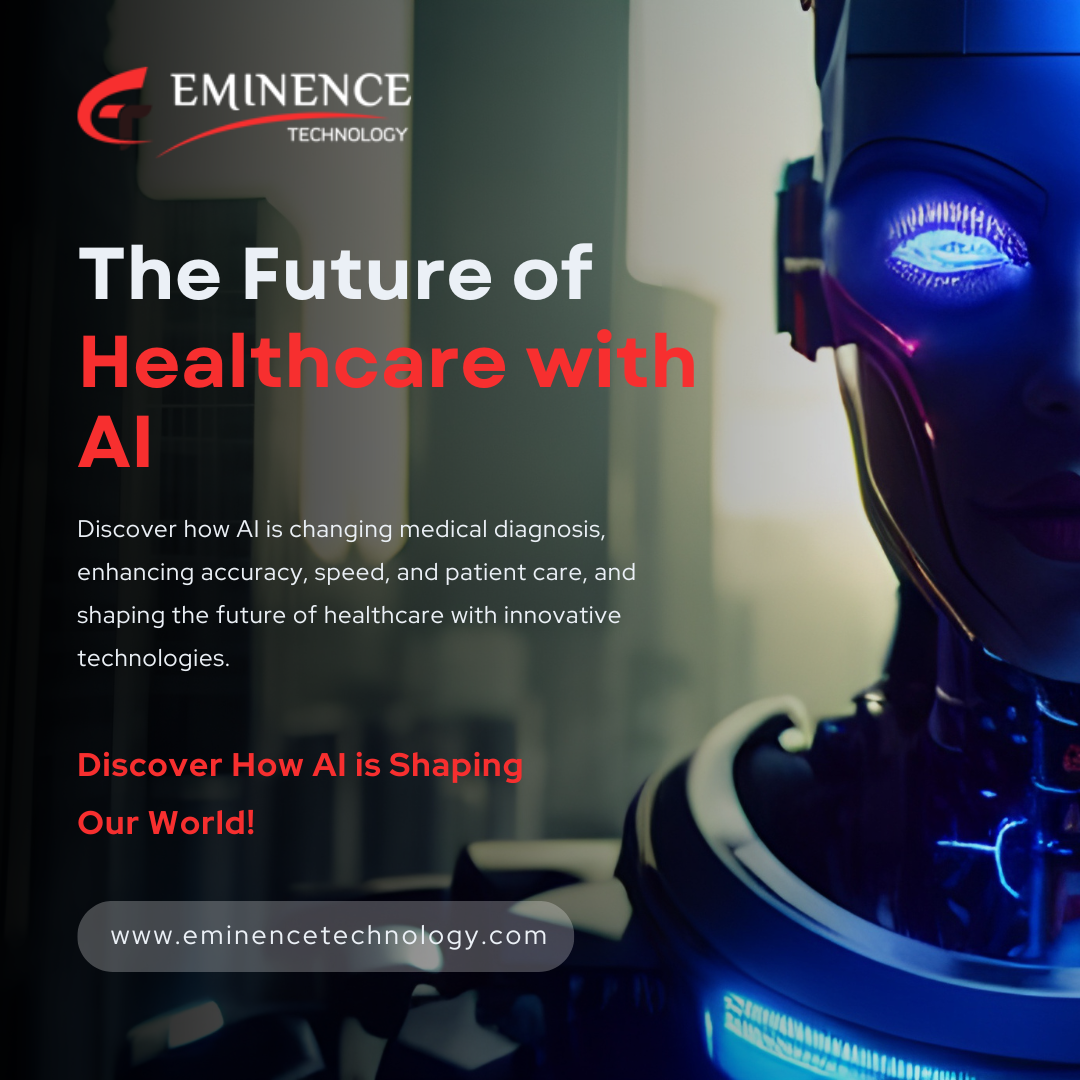What is the current state of AI in healthcare?
Artificial intelligence (AI) is rapidly transforming the healthcare industry, offering innovative solutions that improve patient care, enhance medical diagnostics, and support disease prediction. The integration of artificial intelligence in healthcare is revolutionizing how medical professionals diagnose diseases, develop treatments, and manage patient care. From AI in medical diagnostics to AI for disease prediction, the current state of AI in healthcare reflects a promising future where technology and medicine work hand in hand to improve health outcomes.
The Growing Role of AI in Healthcare
AI is making a significant impact on healthcare by processing large datasets, recognizing patterns, and making data-driven recommendations. Medical professionals are increasingly using AI to enhance accuracy and efficiency in clinical settings. Some of the key areas where AI is currently applied include:
AI in Medical Diagnostics
AI-driven diagnostic tools are helping doctors detect diseases earlier and more accurately. Machine learning algorithms analyze medical images, lab results, and patient history to identify potential health issues. For example, AI in radiology is improving the detection of cancers, fractures, and other abnormalities in X-rays and MRI scans. AI-based diagnostic systems help reduce human error and provide faster results, leading to timely treatments.
AI for Disease Prediction and Preventive Healthcare
Predictive analytics powered by AI is helping healthcare providers anticipate potential health problems before they become critical. AI models analyze patient data to identify patterns and predict the likelihood of diseases such as diabetes, heart disease, and cancer. This allows for early intervention and personalized treatment plans, reducing the burden on healthcare facilities and improving patient outcomes.
AI in Pathology and Medical Imaging
AI is transforming pathology by automating the analysis of biopsy samples and medical images. AI algorithms can identify cancerous cells and other abnormalities more quickly and accurately than traditional methods. AI in medical imaging enhances the ability to detect tumors, fractures, and internal bleeding, leading to more precise diagnoses and treatment plans.
AI in Personalized Medicine
AI is enabling the shift toward personalized medicine by analyzing genetic data and patient history to recommend tailored treatments. Machine learning models assess how different patients respond to specific treatments, allowing doctors to customize therapies for better outcomes. This helps improve patient satisfaction and reduce the trial-and-error approach in treatment.
Challenges and Solutions in AI-Driven Healthcare
While AI offers tremendous benefits, it also presents challenges that need to be addressed for effective implementation:
Data Privacy and Security
AI systems rely on vast amounts of patient data, raising concerns about privacy and security. Unauthorized access or data breaches can compromise sensitive patient information.
Implement robust encryption methods, access controls, and compliance with data protection regulations such as HIPAA (Health Insurance Portability and Accountability Act).
Bias in AI Models
AI algorithms may inherit biases from training data, leading to disparities in treatment recommendations or misdiagnoses.
Diversify training datasets, monitor AI model performance regularly, and apply corrective measures to minimize bias.
Integration with Existing Healthcare Systems
Integrating AI into existing healthcare infrastructure can be complex due to compatibility issues and resistance to change.
Develop scalable AI solutions that align with existing healthcare workflows and provide comprehensive training to healthcare staff.
Lack of Clinical Validation
AI models require rigorous testing and clinical validation to ensure accuracy and reliability in real-world scenarios.
Conduct extensive clinical trials and collaborate with healthcare institutions to validate AI performance before deployment.

The Future of AI in Healthcare
The future of AI in healthcare looks promising as advancements in machine learning, data analysis, and automation continue to grow. Some of the key areas where AI is expected to make a significant impact include:
AI in Clinical Decision Support
AI-powered systems will assist doctors in making evidence-based decisions by analyzing patient data and recommending treatment options.
AI in Cancer Detection and Chronic Disease Management
AI models will improve early detection of cancers and enable better management of chronic conditions such as diabetes and cardiovascular diseases.
AI in Remote Patient Monitoring and Telemedicine
AI-enabled devices will monitor patient health in real time, allowing for early intervention and reducing hospital readmissions.
AI in Healthcare Administration
AI will streamline administrative tasks such as appointment scheduling, billing, and resource allocation, improving overall healthcare efficiency.
Conclusion
The current state of artificial intelligence in healthcare reflects a transformative period where AI-driven solutions are improving diagnostics, treatment, and patient care. From AI in medical diagnostics to AI for disease prediction and personalized medicine, AI is enhancing healthcare outcomes and making medical care more efficient and accessible. However, addressing challenges related to data privacy, bias, and integration is crucial for maximizing the potential of AI in healthcare. With continued advancements and thoughtful implementation, AI will play an even greater role in shaping the future of healthcare.
